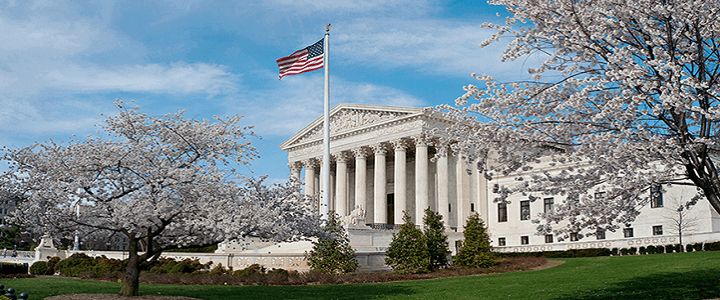Few people would dispute the fact that we live in a litigious society.
Spill hot coffee on yourself? Sue McDonalds. Trip on the sidewalk? Sue the city. The rush to the courthouse has become such an epidemic that many of our nation’s courts are backlogged years for a civil trial.
Most clearance holders know that they have to report on their SF-86 form if they’ve been a party of record (plaintiff or defendant) in a civil lawsuit within the last 7 years, but few have likely stopped to think why the government cares. The reality is that the government typically doesn’t care. A clearance applicant who, for example, was sued following an auto accident or who sued a telemarketer for disregarding the Do Not Call list (a hobby of mine) isn’t likely to cause a blip on security officials’ radar – even though it still must be reported.
Fundamentally, the circumstances under which a civil lawsuit becomes relevant in a security clearance determination are few and far between. But when a lawsuit does become relevant, it can become very relevant. Here’s what clearance holders should know:
Background Investigators Do Review Court Filings
As I’ve written about previously in the context of divorce cases specifically, heated tempers and passions often color the pleadings filed in civil cases. Pro se (self-represented) litigants should be careful to avoid filing unduly inflammatory pleadings that may reflect poorly on them down the road or result in similar allegations being hurled back at them in an answer or counter-suit. Expect allegations involving clearance holder violence, criminal or dishonest activity, substance abuse, or emotional volatility to be scrutinized closely by security officials.
Security Clearance Proceedings Are Not an Opportunity to “Re-Litigate” a Case
Security clearance holders who default (fail to appear) in a civil case are a common occurrence we see in our practice. Most frequently, this involves a debt collection action that is reduced to a judgment. Absent extraordinary circumstances, once a judgment is rendered by a civil court, security clearance officials will treat it as fully legitimate. In other words, whatever defense(s) may have been available to the clearance holder in court are irrelevant at that point. Don’t expect an opportunity to re-litigate the merits of a case that was lost in civil court, regardless of whether the loss was by default or after a judge or jury trial.
One Lawsuit is an Anomaly. Multiple are a Potentially Concerning Pattern.
A single lawsuit to collect a debt, enforce a contract, or settle a property dispute is generally insignificant in the security clearance context unless it is demonstrative of a serious character flaw or integrity issues. But clearance holders with multiple lawsuits in their wake may face questions about their personal responsibility, judgment, or honesty. Similarly, a clearance holder who routinely files frivolous lawsuits as a means of harassment (otherwise known as a “vexatious litigant”) may also face questions about whether s/he demonstrates the type of character expected of someone granted access to classified information.
If you find yourself embroiled in a lawsuit, don’t shy away from legitimately vindicating or defending your rights for fear of fallout on your security clearance. Do, however, be cognizant that everything that transpires in open court is public record. It is always best to handle oneself accordingly.
This article is intended as general information only and should not be construed as legal advice. Consult an attorney regarding your specific situation.




